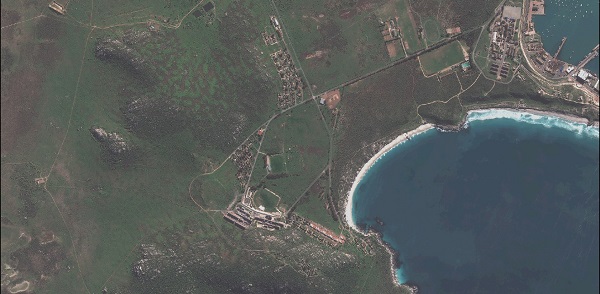The Military Geography Subject Group aspires to empower students with knowledge and skills that will assist them with decision making relevant to the African military milieu. The importance placed on military geographic education is seen in the fact that Military Geography is included as part of the subject matter in four of the six undergraduate academic programs presented at the Military Academy. A strong environmental component in the course instils the soldier with the necessary regard for the environment in which he or she will operate, so that the harmful effects of military operations on the environment may be limited and tactical advantages gained. 
In the first year students are introduced to the natural world with all its internal processes, physical features, weather systems and climate. Topographic and cartographic skills are taught and refined so that students understand maps. Students are taught how to extract data from maps and how to represent this data in the form of figures, diagrams and reports.
Second year geography students are exposed to a study of the natural environment, environmental issues and the impact that military operations have on the environment in general. Following a more specific approach students are also oriented in terms of the physical environment in which they will operate, particularly during peace keeping and safekeeping operations; in Sub-Saharan Africa. Knowledge of the Sub-Saharan African physical and human landscapes is of vital importance to the soldiers of the SANDF. Military Geography students are therefore also educated about cultural, historical, medical, economic, developmental, social and political issues facing Sub-Saharan Africa. Understanding these issues will enhance the soldier’s insight of the broader context of happenings in the sub-continent.
The final year focuses on the technological side of modern geography. During the first semester students are introduced to Geographic Information Systems (GIS). Here students are taught the fundamental concepts of geographic information science and venture into spatial analysis. The module also has a strong hands-on component during which the students learn how to use ArcGIS to capture, store, retrieve, manipulate, query and display digital geographic data. In the final semester remote sensing skills are presented to the final year students as part of Military Terrain Analysis. Military Terrain Analysis focuses on terrain of military importance. After successfully completing the module the student will be able to interpret, analyse and evaluate the way terrain influences military activities in support of strategic and tactical decisions. Such students will also be proficient in the classification and interpretation of remotely sensed imagery.
Successful final year students who wish to continue with post-graduate studies, have the option to follow the Honours in Military Geography degree. Environmental management and political geography in South Africa and GIS are revisited in greater depth at this level. A module in geographic thought and methodology teaches the student how and where Geography fits into the world of the sciences and furthers the student’s understanding of geography. The honours students also undertake a research project in which they are introduced to the theoretical and practical world of scientific research writing.
A Masters in Military Geography is presented by arrangement with available staff. The Department specifically encourages research topics on military-related issues and is at present engaged in research on the impacts of geographic factors on the outcomes of war. In this degree students are taught the essence of environmentally responsible defence. The students are immersed in topics like military integrated environmental management, environmental considerations in military operations and sustainable military training area management, in order to grasp the concept of environmentally responsible defense. Finally a research thesis is written in which the master’s student draws upon all his/her acquired knowledge and geographic skills to conduct in depth scientific research on a military related geographic problem.

